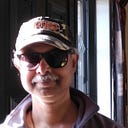Learning points from Paul Silvia’s “How to write a lot”
I learned about Paul Silvia’s book from Raul Pacheco Vega’s tweet.
I read the book and paraphrased here. Here are the learning points I found (if you want a copy of the book, leave your email address in a private comment). He wrote the book for academic psychologists, and I am not one. But I found the book helpful for writing. Here are the points he discusses in the book (I also added my own observations).
Schedule to write. Then, during the schedule, write. Turn off distractions. Do not meet anyone, or do not allow yourself to be distracted.
- Start with allotting time to write, don’t say “I need to find time to write”, that does not help.
- Set up a fixed time everyday and keep writing on those hours. Don’t worry if you go a little over the hour. Silvia says these things build up.
- Do not binge write. Binge writing is wasteful and unproductive, don’t do it.
- Be sacred about your writing schedule and the writing hour. Say no to distractions, keep out intruders at your writing hours (for me these are writing and data analysis hours: I analyse first, then write about the results, then write everything else)
- Make a schedule and stick to it — that is the only way you can write a lot.
- We often say “I need to read before I write”; I know I do it a lot. Scheduling is the alternative:
- Schedule writing time and within these writing time, you can set aside time to read or run data analysis. It is about setting up a project time towards a goal.
- Don’t worry about your tools: just write using paper pencil and whatever floats your boat (any computer or tablet, whatever you find comfortable and useful to write will work). Many people tend to procrastinate waiting for a tool to write.
OK, so you have scheduled, now you are not sure what to write, what will you do?
- Start with setting writing goals
- For that, you must realise that goal setting is part of writing, not something associated with writing or a ritual or something that is not part of writing.
- Your writing is a project. List your project goals (for example, I am going to write a book and write 1000 words every day, for me now there are a couple of book chapters to write). You can start with any project or any number of projects.
- Use a whiteboard to write the goals and keep close to your writing place if you have one.
- Set a concrete goal for each day of writing. The goal cannot be vague — you are not allowed to say something like, “I am going to write a book chapter” — that is too vague. Say something like I am going to write 2000 words and complete the chapter.
- Be like Anthony Trollope: write 250 words in 15 minutes
- This is an aside:
In Medium, Tom Farr has advised that you create an outline, then set yourself a time limit, say an hour and then write. When you write, do not use the delete key or the back space key, just keep writing. There is even an app for that.
Prioritise projects with due dates (proofing, grant writing, etc)
- Review manuscripts and grant proposals
- Monitor your writing progress
- Keep track whether you sat down and wrote. It’s the same thing with meditation or exercise or anything that is useful.
- Start a spreadsheet with the following entries:
- Year
- Date
- Month
- Day (day of the week)
- How many words written
- Goal met (binary: yes/no)
- Project
- Comments
- If you did not write but read or did research, leave the cell blank for that day
- Track yourself, don’t worry about technology.
- Using a spreadsheet helps you to analyse
- Reward yourself when you meet a project goal. But the reward needs to be a reward, you cannot reward yourself by skipping a day!
We can do this for any other activities. A related theme is Seinfeld’s Chain. Jerry Seinfeld said that he would mark a cross on the calendar for the day he accomplished the practice (say in his case writing a comedy script) and kept on doing so. He would see that his string would not break.
You’d find other tips in the book, about starting a writing club, and about how to write well, although he wrote that this was a book on prolific writing.
